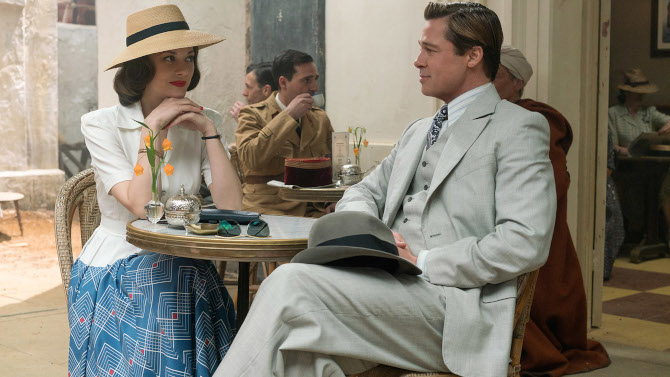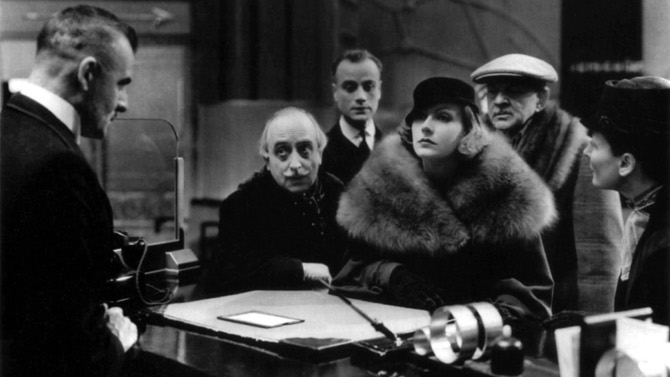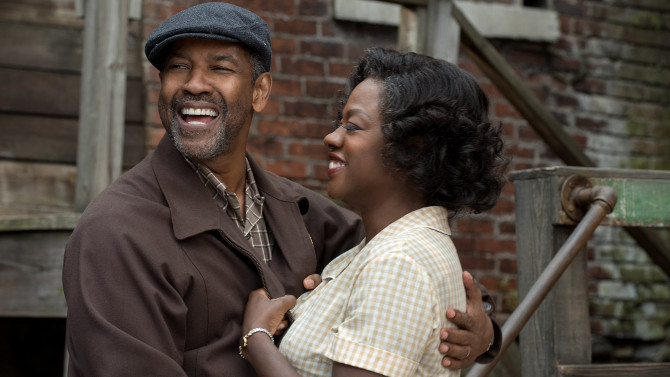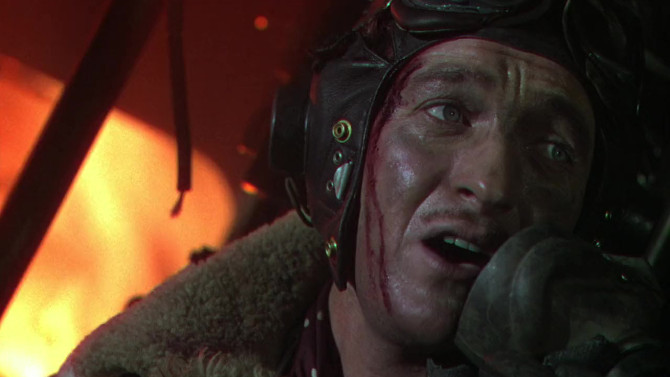
Déjà vu Dalliance
Channeling the mesmeric movies churned out by the studio system back in the 1930s and 40s, Allied (2016), directed by Robert Zemeckis, channels the likes of Morocco, Casablanca, Across the Pacific, Gilda, To Have and Have Not, and numerous others – attempting to find a spark from the classic themes of melodrama, romance, suspense and the epic nature of the annals of the cinematic past, with quite successful results. Set the year Casablanca and Across the Pacific were released – 1942, the story in fact starts in Morocco, with recently parachuted in Canadian spy Max Vatan (Brad Pitt) meeting up with another undercover agent, Marianne Beauséjour (Marion Cotillard), who will be pretending to be his wife.
-

Jackie’s Legacy for John
JackieFebruary 24, 2017Unfurling the story that takes place immediately after the assassination of John F. Kennedy, 2016's Jackie is an intimate portrayal of a woman in a dreadfully surreal crisis. Delving into a horrifically memorable moment from the past that has seemingly been looked at in every which way, Jackie succeeds at developing a multilayered story that goes beyond the surface, and thought-provokingly brings up questions of fact versus fiction, history versus myth/legend, idealism versus realism, as well as finding stark stoicism in the face of unimaginable horror. And horror it is, as director Pablo Larraín weaves together multiple threads that create a somber, melancholic mood that teeters on realistic dread, dismay and terror. It is something that is hard to fathom – as it is unbelieve to imagine that any of us will ever experience such a dreadful incident that is then followed by overwhelming media attention and scrutiny. Though vulnerable, our main character is able to steady herself, finding a poised grace in order to stand strong, being a calm, enduring, mother-like figure that will help guide the nation through one of its darkest hours.
-

A Grand Old Time
Grand HotelFebruary 12, 2017"Grand Hotel. . . always the same. People come, people go. Nothing ever happens". But we know this is not so. The winner of Best Picture at the 1932 Academy Awards (the only film to ever win the big prize without being nominated for any other Oscar), Grand Hotel is the first film to ever bring together a who’s who cast to create an ensemble. Breaking the mould, where studios would have had only one or two of their stars in a single film (to cut down on costs as well as avoid strife), MGM united five of their top actors. The iridescent Greta Garbo plays Grusinskaya, a temperamental prima ballerina who is depressed and disillusioned, feeling like her best days are behind her. The versatile John Barrymore plays the Baron, a man who, despite his aristocratic title, has fallen on hard times, desperate for money.
-

Take the Long Way Home
LionFebruary 8, 2017A little ragamuffin – strong willed, feisty and wily, finds himself waking up on a bench at a train station with his older brother nowhere in sight. With his mother at home, he shouts for his missing brother, but nothing comes of it. He searches an abandoned train, only to fall asleep sometime in the night. When he wakes, the still empty train is moving. When it finally stops, he finds himself in Calcutta, nearly two thousand miles away from his hometown, not knowing the Bengali language or having anywhere to turn. It is this bizarre and unfortunate circumstance that is the genesis and heart of the story Lion, first time filmmaker Garth Davis’ moving drama. The young boy is Saroo (Sunny Pawar), his fatherly older brother is Guddu (Abhishek Bharate), and his caring impoverished mother is Kamla (Priyanka Bose). Though theirs is a tough life in a rural Indian town, filled with hardship and many struggles, love permeates their family.
-

Dealing with Seasickness
Manchester by the SeaJanuary 22, 2017Utilizing the same name as the quaint village in which it is set, Manchester by the Sea depicts the lives of a family struggling with the recent death of a father and brother. The story follows Lee Chandler (Casey Affleck), a man wallowing in a morass of pain, sorrow and apathy. The quiet, introverted gent works as a handyman in Quincy, Massachusetts, though soon gets a call that his brother Joe (Kyle Chandler) is in the hospital. Rushing to Manchester, with its clapboard houses and brisk, windy, wintery weather, he is too late. Having the unenviable task of tracking down his nephew Patrick (Lucas Hedges) to tell him the dispiriting news (he finds him at hockey practice), he soon discovers that his brother has left him in charge of raising the sixteen year old. While in the picturesque locale, people point, stare, whisper and snarl at the former resident (a mystery that will, in its own fine time, be revealed).
-

Don’t Let This Fence Keep You Out
FencesJanuary 21, 2017Based upon a stage play, Denzel Washington utilizes August Wilson’s adaptation of his own drama Fences to tell an engrossing story of an African American family growing up in the 1950s. Both literal and figurative, Troy Maxson (Washington) is building a fence in his backyard, though it is also a symbolic barrier placed up to guard against his own projections of the impending Grim Reaper (fighting off a serious case of pneumonia, aka. Death, at a young age, he is constantly vigilant for his return – though not afraid in the least). He enjoys the chess match that they play over time. It is also a powerful allegory for the walls he builds between himself and different members of his family. On the opposite spectrum, it is also a way for his wife Rose (Viola Davis) to put up something that will protect her family, keeping them safe on the inside, while keeping unwanted dangers at bay.
-

Stairway to Heaven
A Matter of Life and DeathJanuary 13, 2017Born out of the horrors of World War II, famed British filmmakers Michael Powell and Emeric Pressburger released A Matter of Life or Death one year after the conclusion of the hostilities. Cleverly evoking the complexities of the era, the writer/director team fuse together multiple themes that, in some way, make sense of love, life, death, Heaven and the wounds that soldiers suffered during the traumatic affair. Beginning on a grand celestial scale, we are brought forth to an intimate, heartbreaking moment when British Royal Air Force Squadron Leader Peter Carter (David Niven), after ordering his crew to bail out (letting them know that he will soon follow), reveals to an American radio operator, June (Kim Hunter), that his plane is crashing and he has no parachute. His smooth vocals, grievous situation and stiff upper lip attitude leave the woman distraught, and the two fall in love by way of the irregular circumstance. Leaving his dead friend Bob (Robert Coote) on the plane, Carter leaps into the pea soup thick fog just off the English coastline.
